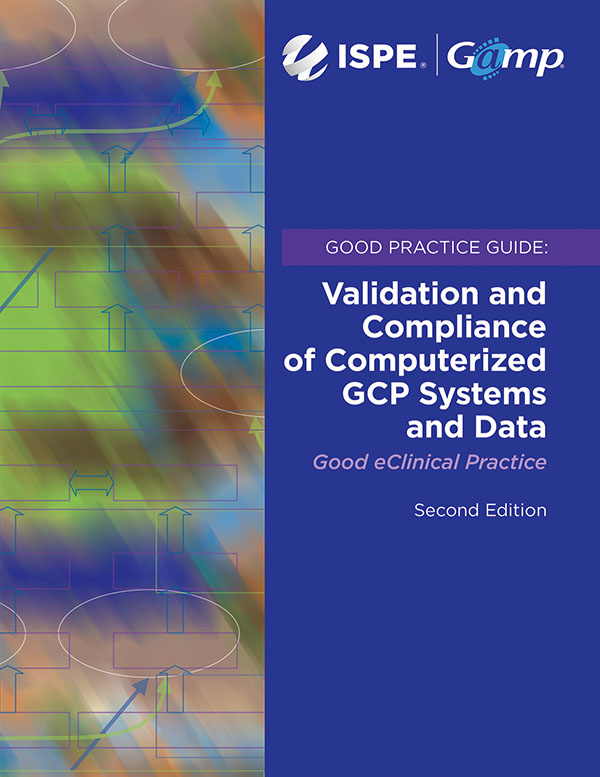Understanding ISPE’s GAMP Influence on GxP Computerised Systems
With over 21,000 pharmaceutical professionals as members, representing 120 countries, the International Society for Pharmaceutical Engineering (ISPE) is a leading global association dedicated to advancing the understanding and application of pharmaceutical engineering and manufacturing. ISPE brings together experts from across the industry to collaborate, share knowledge, and develop best practices that drive innovation and ensure compliance.
In the increasingly digitalised world of pharmaceuticals and life sciences, ensuring the integrity, quality, and compliance of computerised systems within GxP environments has become more important than ever. As digital transformation accelerates, the complexity and volume of data managed by these systems have grown, presenting a major challenge for the industry. To address these challenges, the ISPE’s GAMP guidelines provide a vital resource, offering guidance and support.
What is GAMP?
GAMP, or Good Automated Manufacturing Practice, is a set of guidelines developed by ISPE to help companies in the pharmaceutical and life sciences industries validate computerised systems used in GxP-regulated environments. These guidelines are essential for ensuring that software and hardware systems are fit for their intended use, reliable, and compliant with regulatory standards.
GAMP is not a regulatory requirement itself but is widely recognised and used as a framework for meeting the regulatory expectations of bodies such as the U.S. Food and Drug Administration (FDA), the European Medicines Agency (EMA), and Medicines and Healthcare products Regulatory Agency (MHRA). The GAMP guidelines help companies implement a risk-based approach to validation, focusing resources on critical systems and processes that directly impact product quality and patient safety.
GAMP’s Impact on GxP Computerised Systems
GAMP has a huge influence on GxP computerised systems, providing a structured approach to validation and lifecycle management. Here are some key aspects of how GAMP shapes the development and management of these systems:
1. Risk-Based Approach
GAMP encourages a risk-based approach to validation, meaning that the level of validation effort is proportional to the risk the system poses to product quality and patient safety. This approach helps organisations focus on what matters most, ensuring that critical systems are thoroughly tested and validated without unnecessary expenditure on low-risk areas.
2. Lifecycle Management
GAMP promotes a lifecycle approach to computerised system management, encompassing everything from initial concept through to system retirement. This approach ensures that validation is not a one-time event but an ongoing process that continues throughout the system’s operational life. Regular reviews, updates, and re-validation are key components of this lifecycle approach.
3. Scalability and Flexibility
One of the strengths of GAMP is its scalability. The guidelines can be applied to systems of all sizes and complexities, from simple spreadsheets to enterprise-level systems. This flexibility makes GAMP an invaluable tool for companies of all sizes, enabling them to implement a system appropriate to their specific needs.
4. Supplier Involvement
GAMP emphasizes the importance of working closely with system suppliers to ensure that they understand and meet GxP requirements. This collaborative approach helps to ensure that the systems delivered are of high quality and meet the specific needs of the regulated environment.
5. Continuous Improvement
GAMP supports a culture of continuous improvement, encouraging organisations to regularly review and refine their processes. This proactive approach not only helps to maintain compliance but also drives operational efficiency and innovation.
The Broader Impact of GAMP on the Industry
The adoption of GAMP guidelines has had a huge impact on the pharmaceutical and life sciences industries. By providing a clear, structured approach to computerised system validation, GAMP has helped companies to streamline their operations, reduce costs, and maintain compliance with regulatory requirements.
GAMP has fostered a greater understanding of the importance of data integrity and system reliability in GxP environments. This understanding has led to the development of more robust, reliable systems that are better equipped to support the stringent demands of pharmaceutical manufacturing and research.
Conclusion

It is no surprise that the ISPE’s GAMP guidelines have become an indispensable tool for companies operating in GxP environments. By promoting a risk-based, lifecycle approach to computerised system validation, GAMP has helped to ensure that these systems are reliable, compliant, and fit for their intended use. For organisations looking to stay ahead in this complex and regulated landscape, understanding and applying GAMP principles is not just a best practice—it’s a necessity.
We are proud to mention that Arkivum’s Chief Technology Officer, Matthew Addis, recently contributed to a GAMP Good practice guide titled “Validation and Compliance of Computerized GCP Systems and Data”, further demonstrating our commitment to supporting industry best practices and compliance. More information on this publication can be found on the ISPE website www.ispe.org

Anthony Wells
Anthony assumed the role of Product Marketing Manager at Arkivum in 2024, leveraging over a decade of experience of product marketing management in the technology sector. Proficient in developing and executing marketing strategies, Anthony is also experienced in product lifecycle management, from inception through to discontinuation.
Get in touch
Interested in finding out more? Click the link below to arrange a time with one of our experienced team members.
Book a demo